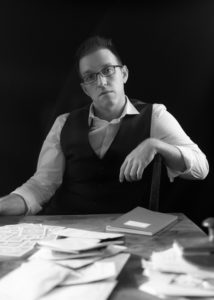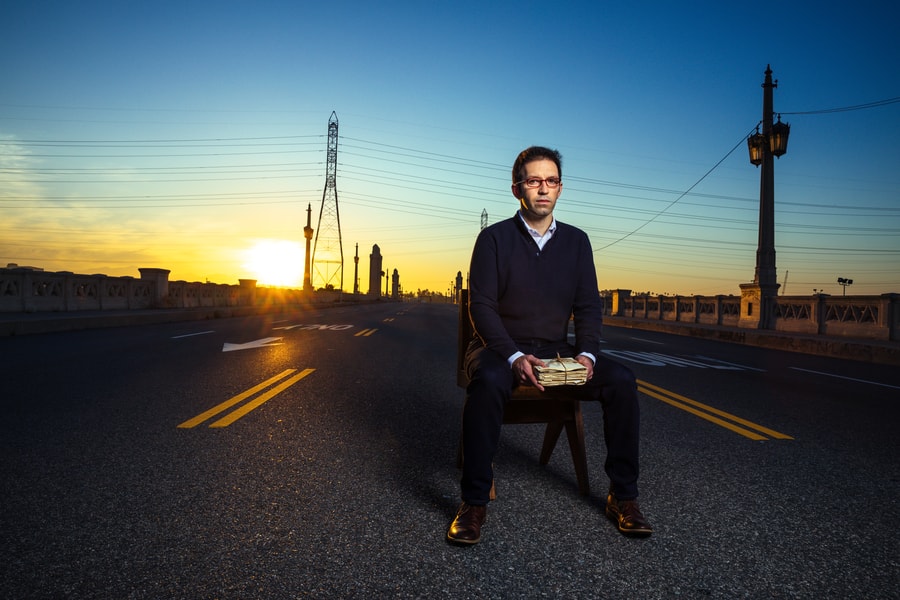This isn’t Helder Guimarães’ first quarantine.
When he was 11, Guimarães, now a playwright and illusionist, spent almost a month alone recuperating after being hit by a car and awakening from a coma. During that down time, he developed what he now calls one of the biggest assets anyone can have in their life: the ability to decide how to use your time. More than a quarter century later, he is making good on that asset and using this COVID-19-necessitated quarantine to entertain 25 people at a time via Zoom with The Present, an interactive virtual production from the Geffen Playhouse (a.k.a. “Geffen Stayhouse”) in Los Angeles. The show has been extended through October.
The show gets its name in part from an actual sealed gift that each participant receives in the mail. They are instructed not to open the package until instructed to do so during the show. The contents inside play a vital role in The Present, which includes extensive sleight-of-hand magic.

Guimarães, a winner of the World Championship of Magic who has trained such actors as Sandra Bullock and Cate Blanchett to perform magic onscreen, said he had the idea for The Present for years but finally found the perfect medium for it, the meeting platform Zoom. But while the idea is an old one, he and his team put it into place very much in the present, with a complete crew setting up costumes, design, lighting, and set design in his Los Angeles house in the space of three weeks.
“Our goal was to use what we have as our resources and create something that would break this fourth wall that is now the screen and actually affect people in this moment,” he said. “We just felt that we had all of the pieces of that puzzle to create something.”
The play’s director, Frank Marshall, said he brought to the live theatre experience the skills from what he called his “day job” of producing such hit films as Back to the Future and Raiders of the Lost Ark. He said he has especially enjoyed witnessing what film creators rarely get to see: the interaction of the audience in real time.
Managing that interaction is a true test of teamwork, with everyone except the camera operator (who also happens to be Guimarães’ fiancée) working remotely. Among the challenges are figuring out how to control various screens and selectively mute and unmute to allow for moments of laughter and amazement.
“It really became two different things,” Marshall said. “On the storytelling side, how do we do that? And then, on the technical side, how do we present the magic so everybody feels that it’s real and fair?”
Though some sequences require muting the audience members, Marshall and the entire Present team try to keep everyone off mute as much as possible so they can hear each other’s humanity as they might in a live space. Geffen artistic director Matt Shakman said he wanted to make sure the communal aspect of the 45-minute play was as genuine as possible. Using one continuous shot with one camera as opposed to multiple cameras, he said, was one way to avoid a sense of trickery. “This show is bespoke,” Shakman said. “It’s not something we repurposed for this moment. It was written for this moment.”

Finding a home for magic within theatre productions is not new to Guimarães, whose previous shows include Invisible Tango and Nothing to Hide. After all, he said, pretending to be someone onstage and committing to a role with both passion and technique is a kind of trick, allowing audiences to forget that what they are seeing is fake.
“Magic works exactly the same way,” he said. “You know that what I’m doing is achieved not because I have powers, not because magic exists in the sense of impossible things that defy the laws of physics. But if I get you to a point where you want to believe what your eyes are telling you, that means I’ve succeeded as a magician.”
The engagement between audience members and Guimarães depends heavily on the text, but that mysterious package they receive in the mail is their only connection until showtime. As curious as the play’s blend of magic and drama is, he feels the two have a strong link.
“I think there is a part of theatre that is magic and a part of magic that is theatre,” Guimarães said. Either way, he concluded, “Success comes when the audience is suspending the disbelief of what they are seeing.”
In addition to that individual box in the mail, the title other gives a nod to the fraught moment we’re currently experiencing. The final piece of Guimarães’ mystery doesn’t become clear until you disentangle the twine that covers the little bundle, opening not just a box but a window into a solitary experience from 26 years ago.
Sharee Turpin is a Goldring Arts Journalism graduate student at Syracuse University.


